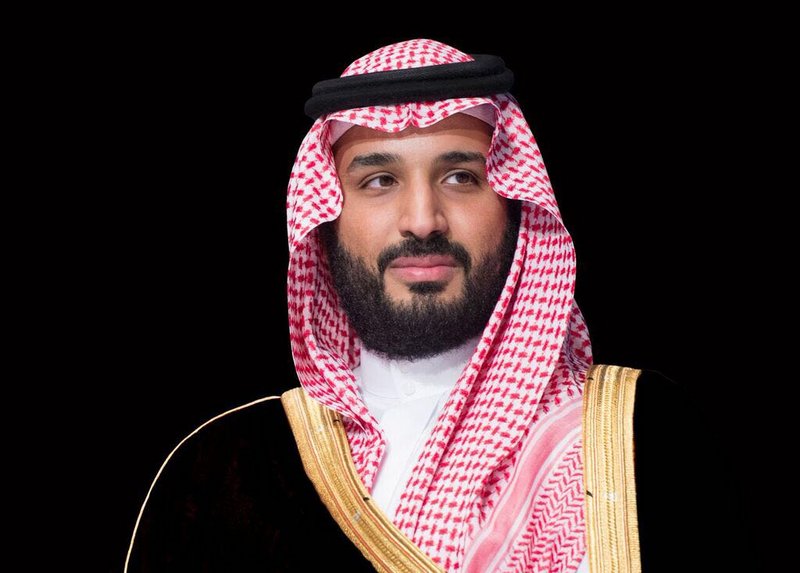
HRH Crown Prince Launches National Transport and Logistics Strategy, One of Vision 2030 Pillars
His Royal Highness, Prince Mohammed bin Salman bin Abdulaziz Al Saud, Crown Prince, Deputy Prime Minister, Chairman of the Council of Economic and Development Affairs, and Chairman of the Higher Committee for Transport and Logistics launched today, Wednesday 20/11/1442 AH corresponding to 30/6/2021, the National Transport and Logistics Strategy. The comprehensive strategy aims to position KSA as a global logistics hub connecting the three continents and improves all transport services across the modes along with enabling the integration between the logistic services and the Future mobility to enable Vision 2030. The strategy supports the comprehensive development process in the Kingdom.
The strategy includes a host of Game-changer projects that enable the achievement of economic and social goals, and the adoption of effective governance models to enhance institutional work in the transport system, in a manner consistent with the change of the Ministry's name from the Ministry of Transport to the Ministry of Transport and Logistics Services.
His Royal Highness the Crown Prince said, “This strategy will strengthen human and technical capabilities in the transport and logistics sector in the Kingdom. It will enhance the connection with the global economy and enable our country to invest its geographical position in the middle of the three continents in diversifying our economy by establishing an advanced logistics services industry, building high-quality systems of services, and applying competitive business models to enhance productivity and sustainability in the logistics sector. Transport and logistics are a major focus of the programs of the Kingdom's Vision 2030 and a vital enabling factor for economic sectors towards sustainable development.”
His Royal Highness indicated that the strategy focuses on developing infrastructure, launching several platforms and logistic zones in the Kingdom, implementing advanced operating models and systems, and strengthening effective partnerships between the government and the private sector to achieve four main goals: transform KSA into a logistics hub, enhance livability across KSA, enhance fiscal sustainability and improve public entities performance.
His Royal Highness added that the strategy aims to advance the Kingdom of Saudi Arabia to become the fifth globally in Transit Passengers, increase international destinations to more than 250, in addition to launching a new national air carrier, which enabling other sectors such as Hajj, Umrah, and tourism to achieve their national goals. Furthermore, the strategy will seek to raise the capabilities of the air cargo sector by doubling its capacity to reach more than 4.5 million tons.
Concerning maritime transport, His Royal Highness said, “The strategy enables us to reach a capacity of more than 40 million containers annually including all associated investments in developing port infrastructure and enhancing its integration with the logistic areas in the Kingdom, as well as expanding its connectivity with international shipping lines, to integrate with rail and road networks, which contributes to improving the efficiency of the transport ecosystem and its economics.”
His Royal Highness also explained that the railways provide services for the passenger and freight transport sector through a network of 5,330 km of track, 450 km of which are in the Haramain high-speed railway between Mecca and Madinah, which is the largest high-speed transport project in the region. The strategy will also increase the total length of future railways estimated at 8,080 km, including the "land bridge" project, spanning more than 1,300 km, which will have a capacity to exceed 3 million passengers and transport more than 50 million tons of freight annually to connect kingdom’s ports on the coast of the Arabian Gulf with the ports of the Red Sea coasts opening new and promising opportunities for this rail line by passing through modern logistic centers, economic hubs, industrial cities, and mining activities. This will improve the logistic performance index of the Kingdom to be among the top ten countries in the world, including an open market for operators and investors in railways, in a way that encourages the achievement of an important regional goal and interconnection with the Arab Gulf states by a railway line, hence positioning the Kingdom as an influential player in regional and international transport economies.
His Royal Highness the Crown Prince stressed that the strategy is based on important pillars such as the Kingdom’s major road networks, for which the Kingdom retains top global standing in terms of its connectivity. The Kingdom will be among the most internationally advanced countries in terms of road quality and safety, as the strategy includes many initiatives aimed at reducing the number of road traffic accident victims, following the best global practices, as well as achieving efficient connectivity, and developing public transport services in Saudi cities. The Kingdom also aims to achieve goals in sustainability, preserving the environment, reducing fuel consumption by 25%, and providing smart solutions to facilitate the mobility of travelers between cities and the transport of goods by adopting the latest in global cutting-edge and innovative technologies.
His Royal Highness indicated that one of the main objectives of the strategy is to increase the contribution of the transport and logistics sector to the national GDP. While the contribution of this sector to the Kingdom’s GDP is currently about 6%, the strategy aims to increase it to 10%, making the transport and logistics sector a major contributor to the national economy, enabling business growth, expanding investments, and increasing the sector’s annual non-oil revenues to reach about SAR45 billion in 2030.
His Royal Highness concluded, “We are proud of the achievements made under the leadership of the Custodian of the Two Holy Mosques, King Salman bin Abdulaziz Al Saud and we plan to move forward to achieve more leaps that benefit our country and advance its leading position in the world by increasing efforts and achieving more successes supported by our highly ambitious people. We are all confident in our ability to achieve national goals following the Kingdom's 2030 vision.”



























